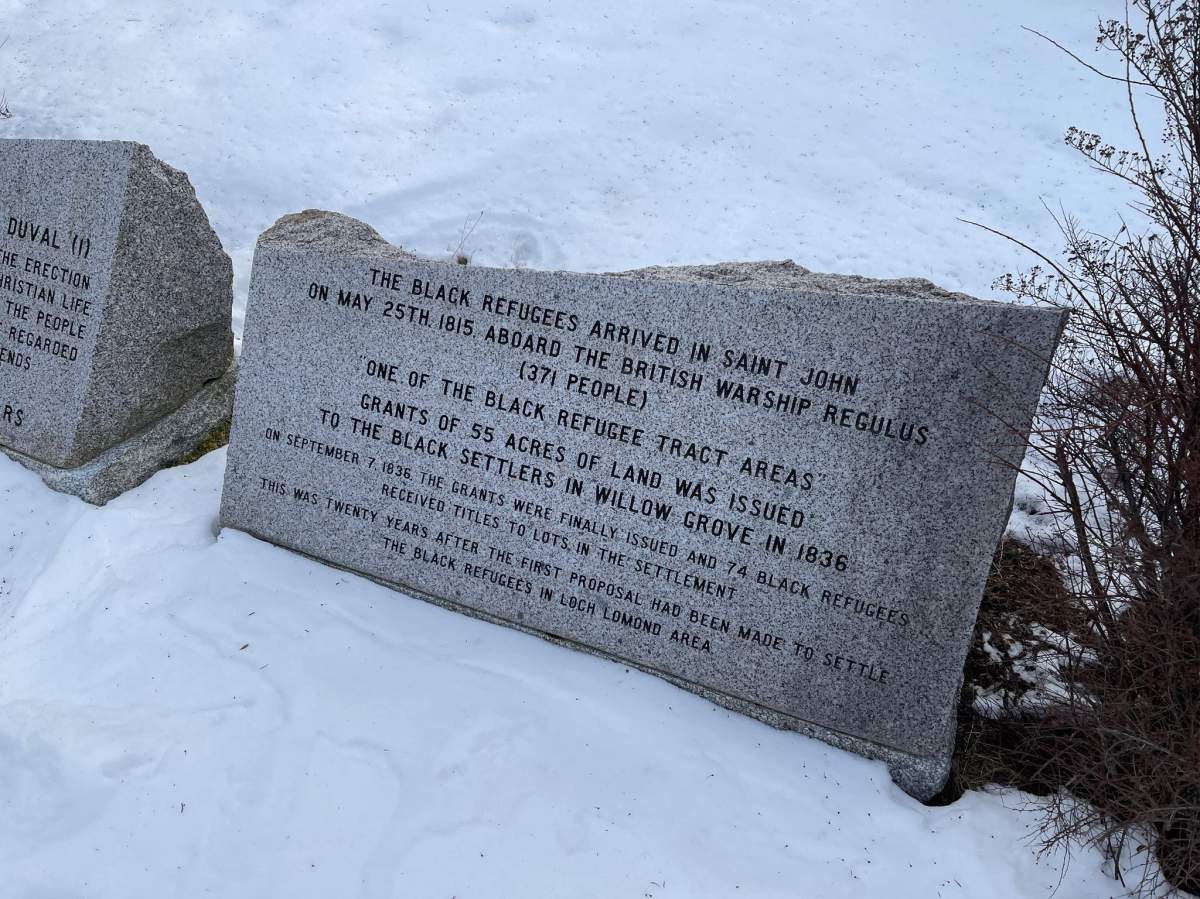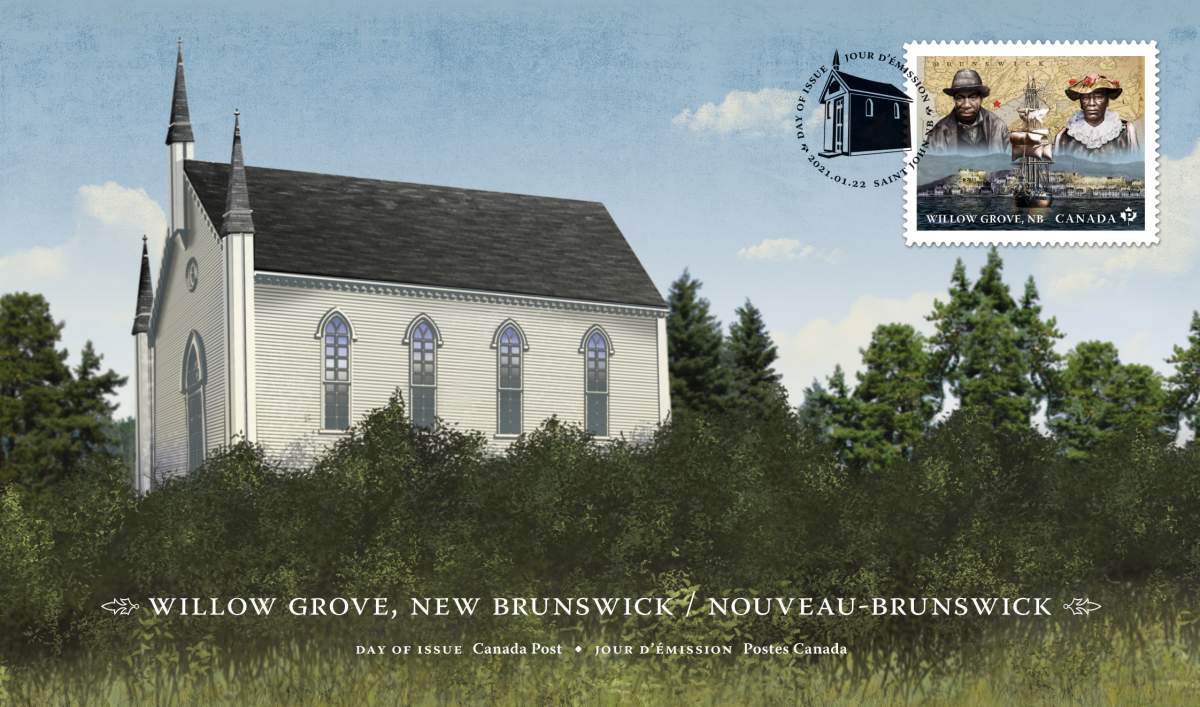As Black History Month approaches, Canada Post has unveiled a set of stamps honouring early Black settlers to two communities, one of which is in New Brunswick.

The communities are Amber Valley, Alta., and Willow Grove, N.B., where Black refugees settled after escaping slavery in the U.S.
This is the first time a story about New Brunswick’s Black history has been featured on a stamp.
“I just can’t describe how happy people are, how happy I am,” Ralph Thomas said with a laugh.
Thomas is a historian with the New Brunswick Black History Society (NBBHS), and he grew up in Willow Grove. Now, he says he’s proud to see the settlement’s history finally recognized.
Thomas said the man pictured on the stamp is Alex Diggs, “one of the early settlers in Willow Grove.”
The Diggs family, he said, was quite famous in Willow Grove for building the settlement.
The woman next to Diggs is Eliza Taylor, Thomas said.
“Eliza Taylor was a lady that came later on… She came to these parts after breaking free from slavery in Virginia.”
Thomas said Taylor’s photo is dated to 1875.
“Black folks came here as refugees,” he said, when in 1815 a ship called HMS Regulus arrived in Saint John.
“They had an agreement with the British that if they fought for them, against the United States, that they would receive their freedom and would get land, and would get things to be able to start a settlement,” Thomas said.
“And that settlement just happened to be Willow Grove in Saint John, New Brunswick.”
Thomas said out of the 371 refugees that came to the area at that time, 74 settled in Willow Grove.
They faced harsh circumstances when they arrived, Thomas said. Alongside facing racism from white settlers in New Brunswick, the early Black settlers had to start from scratch, being given very little.

Get daily National news
“They’re brave people, and the people who had a vision were some of our people, and they deserve the credit.”
“I have to say amen to the First Nation folks that would’ve helped us get through all these situations… They taught them how to live off the land, they taught them how to kill the wildlife and cook it and be able to eat it,” Thomas said.
“Brothers and sisters of the First Nations certainly have to be recognized.”
This is the 13th year Canada Post has celebrated Black History Month with a series of stamps, but the first time one’s told a New Brunswick story.
“I think it’s very important that we do these things,” said Jim Phillips, Canada Post’s stamp director. “We’re very proud to be able to tell these stories.”
While stamps can’t tell an entire story, Phillips said they serve as an introduction.
“They’re very small, they can’t tell the whole story,” he said, “but we have a very wide reach.”

Phillips said with over 6,300 post offices and a large online presence, telling these stories can raise awareness and educate people.
“If someone’s interested in Willow Grove or Amber Valley, and they see the stamp or see a tweet or hear about it… they can dig much deeper.”
Thomas and a few other members of the NBBHS worked with Canada Post on the Willow Grove story and design of the stamps.
“These guys are invaluable on what’s available, what are the resources, what should we show on the stamps,” Phillips said.
“With Willow Grove, there’s very little references, very little images left… One of the original churches burnt down in 1931.”
Now, a small replica of the church sits in Willow Grove, but a rendering of the original is featured on the special edition Canada Post envelope.
The envelope will be sold alongside the Amber Valley stamp as a special first-day collectible.
In total, Canada Post produced 1.4 million of this year’s Black History stamps, and they will be sold in booklets of 10 starting Friday.
Thomas said he is excited for their release.
“It’s not too many people get their pictures on a stamp… We’re used to seeing outstanding people on the stamp. Heroes,” he said.
“They’re our heroes.”
— With files from Travis Fortnum.














Comments
Want to discuss? Please read our Commenting Policy first.